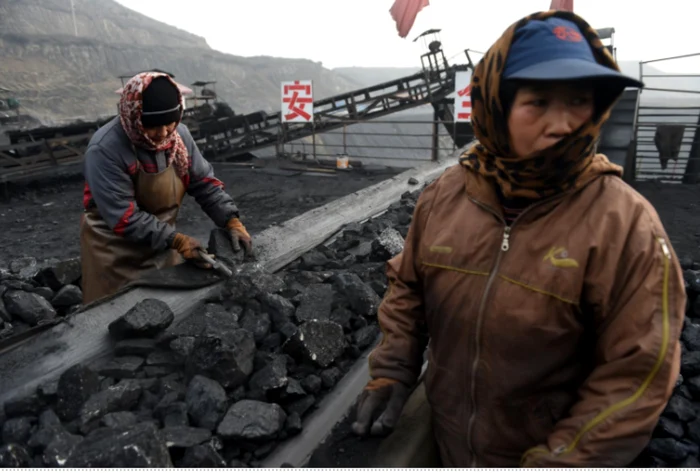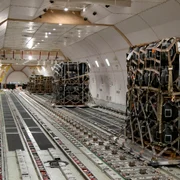
Spectacolul demagogiei mesianice
0
Din păcate, în ciuda speranţelor, promisiunilor şi apelurilor la gândire pozitivă, spectacolul pe care-l oferă Conferinţa mondială asupra climatului arată, pe fond, aceeaşi desfăşurare formidabilă a demagogiei mesianice, acoperind cu greu teribila realitate a vieţii unei planete în care legile supravieţuirii se aplică cu stricteţe şi la fel de nemilos din perioada neanderthaliană încoace.
Unii, adică şefii de state şi guverne care fie nu au ce ce pierde fiindcă oricum n-au niciun fel de relevanţă pe plan mondial, fie sunt în diverse campanii electorale în care dă bine să te arăţi grijuliu cu soarta generaţiilor viitoare, zic pe repede înainte poezia convenită în prealabil de cei din grupa mare, apoi îşi iau paltonul şi se îmbarcă în avionul privat care să-i întoarcă pe domeniile regale autohtone, cu conştiinţa liniştită că, măcar de ochii prostimii, au arătat că sunt implicaţi, că se însforţează şi că au conştiinţă politică. Aşa a fost şi acum, dovadă o foarte angajantă declaraţie în care se promit măsuri ferme, trecerea la politici responsabile faţă de mediu etc.
Este acolo un punct central.
Sau, mă rog, dacă vorbim serios, ar trebui să existe angajamentul solemn al tuturor statelor participante că vor trece la adoptarea măsurilor imediate, în sistem comprehensiv, de renunţare fireşte treptată, dar în ritm rapid, la folosirea cărbunelui, în acest moment sursa cea mai intensă de poluare.
Ok, veţi spune. Evident că e logic, normal, asta e linia impusă de organismele internaţionale şi UE se numără printre ele, la loc de frunte. Nu vă grăbiţi, căci altfel s-ar putea să treceţi mult prea rapid peste uriaşa ipocrizie care alimentează farsa de acum: angajamentele acestea privind retragerea din folosirea intensivă a cărbunelui ca sursă de producţie a energiei NU au fost semnate tocmai de ţările cele mai mari poluatoare ale planetei, China în primul rând, dar şi SUA, India şi Australia.
Iată textul în cauză:

GLOBAL COAL TO CLEAN POWER TRANSITION STATEMENT
We, the undersigned, noting that coal power generation is the single biggest cause of global temperature increases, recognise the imperative to urgently scale-up the deployment of clean power to accelerate the energy transition.
We commit to work together to make clean power the most affordable and accessible option globally, with ensuing economic and health benefits as we build back better from the COVID pandemic.
Our shared vision is to accelerate a transition away from unabated coal power generation, as is essential to meet our shared goals under the Paris Agreement, in a way that benefits workers and communities and ensures access to affordable, reliable, sustainable and modern energy for all by 2030 (SDG7).
Unabated’ coal power generation is described by the G7 and the IEA as referring to the use of coal power that is not mitigated with technologies to reduce carbon dioxide emissions, such as Carbon Capture Utilisation and Storage (CCUS). You can find out more in this G7 press release (July 2021) and on page 193 of the IEA ‘Net Zero by 2050’ report.
We commit to the following actions to drive this global transition forward, and we encourage others to make similar commitments:
- To rapidly scale up our deployment of clean power generation and energy efficiency measures in our economies, and to support other countries to do the same, recognising the leadership shown by countries making ambitious commitments, including through support from the Energy Transition Council;
- To rapidly scale up technologies and policies in this decade to achieve a transition away from unabated coal power generation in the 2030s (or as soon as possible thereafter) for major economies and in the 2040s (or as soon as possible thereafter) globally, consistent with our climate targets and the Paris Agreement, recognising the leadership shown by countries making ambitious commitments, including through the Powering Past Coal Alliance;
- To cease issuance of new permits for new unabated coal-fired power generation projects (New’ coal-fired power generation projects are defined as coal-fired power generation projects that have not yet reached financial close), cease new construction of unabated coal-fired power generation projects and to end new direct government support for unabated international coal-fired power generation, recognising the leadership of countries making ambitious commitments, including through the No New Coal Power Compact;
- To strengthen our domestic and international efforts to provide a robust framework of financial, technical, and social support to affected workers, sectors and communities to make a just and inclusive transition away from unabated coal power in a way that benefits them, and expands access to clean energy for all, recognising the leadership of countries endorsing the COP26 Just Transition Declaration.
We recognize that countries, workers, and communities in the developing world require support to transition from coal and realise a sustainable and economically inclusive energy future, and that international co-operation will be needed to provide such support.
We recognise that while significant progress has been made to realise our shared vision, our task is not yet complete, and we call on others to join us as we redouble our efforts to accelerate the global energy transition over the coming years.
Statement supported by:
The Republic of Albania, H.E. Ms. Belinda Balluku, Minister of Energy and Infrastructure
The Republic of Azerbaijan, HE Mr Parviz Shahbazov, Minister of Energy
The Kingdom of Belgium, Minister Zakia Khattabi, Minister for Climate, Environment, Sustainable Development and Green Deal
The Republic of Botswana, endorsing clauses 1, 2 and 4
Brunei Darussalam, Hon. Dato Seri Setia Ir. Awang Haji Suhaimi bin Haji Gafar, Minister of Development
Canada, Minister Steven Guilbeault
The Republic of Chile, Minister Juan Carlos Jobet
The Republic of Cote d’Ivoire, Minister Thomas Camara
The Republic of Croatia, Mr Tomislav Ćorić
The Republic of Cyprus, Environment Minister Mr. Costas Kadis
The Kingdom of Denmark, Minister Dan Jørgensen
The Republic of Ecuador, Minister Juan Carlos Bermeo, Minister of Energy and Non Renewable Resources
The Arab Republic of Egypt
The European Union, Commissioner Kadri Simson
The Republic of Finland, Minister Mika Lintilä
The French Republic, Minister Barbara Pompili
The Federal Republic of Germany, Minister Svenja Schulze
Hungary, Minister Attila Steiner, endorsing clauses 1, 2 and 4
The Republic of Indonesia, Minister Arifin, endorsing clauses 1, 2 and 4. Indonesia signs up to the COP26 Coal to Clean Power Transition statement, excluding clause 3 but as part of its commitment to reach net zero by 2060, or sooner with international assistance, Indonesia will consider accelerating coal phase out into the 2040s, conditional on agreeing additional international financial and technical assistance.
Ireland, Minister Eamon Ryan TD
The State of Israel, Minister Ms. Karine Elharrar and Minister Tamar Zandberg
The Italian Republic, Ecological Transition Minister, Roberto Cingolani
The Republic of Kazakhstan, First Vice-Minister of Energy, Murat Zhurebekov, endorsing clause 4
The Principality of Liechtenstein, H.E. Ms. Sabine Monauni
The Republic of Maldives, Minister Aminath Shauna
The Islamic Republic of Mauritania, Mariam Bekaye
The Islamic Republic of Mauritius, Honourable Minister Kavydass Ramano
The Kingdom of Morocco, Minister Benali, endorsing clauses 1, 3 and 4
The Federal Democratic Republic of Nepal, Minister Ramashay Prasad Yadav
The Kingdom of the Netherlands, Minister Tom de Bruijn
New Zealand, Minister James Shaw
Republic of North Macedonia, Minister Naser Nuredini
The Republic of Philippines, Secretary Cusi, endorsing clause 1 and partially clauses 2 and 4. The Philippines would like to reiterate a call for climate justice given the Philippines is not a major emitter of greenhouse gases but bears the worsening impacts of climate change, and to emphasise that energy security is foremost as energy transition is a means to improve the lives of the Philippines’ people and the country’s economic development.
The Republic of Poland, Minister Anna Moskwa, Minister of Climate and Environment
The Portuguese Republic, Minister João Pedro Matos Fernandes
The Republic of Senegal, Minister Gladima
The Republic of Singapore, Minister Grace Fu
The Slovak Republic, Environment Minister Ján Budaj
Federal Republic of Somalia, Hon Amb Gamal Mohamed Hassan, Minister of Planning, Investment and Economic Development
The Republic of Korea, H.E. Moon Sung-wook, Minister of Trade, Industry and Energy
The Kingdom of Spain, Minister Teresa Ribera
The Democratic Socialist Republic of Sri Lanka, Minister of Power Gamini Lokuge
Ukraine, Deputy Prime Minister Olha Stefanishyna
The United Kingdom of Great Britain and Northern Ireland, COP26 President Alok Sharma
The Socialist Republic of Viet Nam, Minister Nguyen Hong Dien
Wales, Julie James, Minister for Climate Change
The Republic of Zambia, Minister Hon. Collins Nzovu MP, Minister of Green Economy and Environment
Subnationals
Jeju, Special Self-Governing Province, Republic of Korea, Koo Man-Seop, Acting Governor
Negros Oriental, the Philippines, Governor Degamo
The State of Hawaii, USA, Governor Ige
The State of Oregon, USA, Governor Brown
The Australian Capital Territory Act Government, Australia, Minister Shane Rattenbury MLA
Organisations
ACWA Power, Paddy Padmanathan, President & CEO
Carbon Tracker, Jon Grayson, CEO
Diageo, Kirstie McIntyre, Director
Drax, Will Gardiner, CEO
EDF Group, Alexandre Perra, Group Senior Executive Vice-President
EDF UK, Simone Rossi, CEO
EDP, Miguel Stilwell de Andrade, CEO
Engie, Catherine MacGregor, CEO
Envision, Lei Zhang, CEO
Global Solar Council, Gianna Chianetta, CEO
GWEC, Ben Backwell, CEO
Iberdrola, Ignacio S Galan, CEO
International Geothermal Association, Marit Brommer, Executive Director
Legal & General Group Plc, Simon Gadd (ESG Director), John Godfrey (Public Affairs Director), Sara Heald (Head of CSR)
Local Authority Pension Fund Forum (LAPFF) , Cllr Doug McMurdo, LAPFF chair
Mott MacDonald, Professor Denise Bower, Executive Director
National Grid, John Pettigrew, CEO
Ørsted, Mads Nipper, CEO
PensionDanmark
PSEG, Ralph Izzo, CEO
Renew Power, Sumant Sinha
RES, Eduardo Medina, CEO
Siemens Gamesa Renewable Energy, Andreas Nauen, CEO
SSE, Alistair Philips-Davies, CEO
UKSIF, James Alexander, Chief Executive
Varma, Hanna Kaskela
Ţările care au semnat declaraţia dovedesc măcar faptul că se iau în serios şi, în mod excepţional, chiar ies din discursul penibil şi demagogic mesianic al celorlalţi, bazat de fumul şi ceaţa unor promisiuni goale de sens. UK, spre exemplu, arată că a vorbit serios atunci când a promis că în octombrie 2024 doreşte să pună capăt folosirii cărbunelui în producerea de energie electrică, poate vă aduceţi aminte că Italia încă din 2017 anunţa o decizie în acest sens, agenda fiind setată pentru 2025. Germania nu va mai folosi cărbune începând cu 2030, cu opt ani mai devreme decât era planificat.

Dar marii poluatori? China în primul rând, ce face?
În paralel cu un discurs frumos despre sănătatea planetei, autorităţile noului Imperiu Celest au decis creşterea nivelului producţiei zilnice de cărbune cu peste 1 milion de tone: Comisia naţională chineză pentru dezvoltare naţională şi reformă a declarat că producţia zilnică de cărbune s-a ridicat la aproximativ 11,5 milioane tone de la mijlocul lunii octombrie, mai mult cu 1,1 milioane tone faţă de nivelul înregistrat la finele lunii septembrie.
China este, în acest moment, cel mai important poluator al planetei şi sunt foarte mari şanse ca lucrurile să nu se schimbe prea curând în cazul ţării care are în structura conului său energetic peste 60% din resurse provenite din arderea cărbunelui pe care-l importă acum de pe toate pieţele posibile, inclusiv din Coreea de Nord.
Concluzia?
Credeţi pe cine vreţi, credeţi ce vreţi, dar e sigur că Mesia minunilor climatice nu va veni.

















